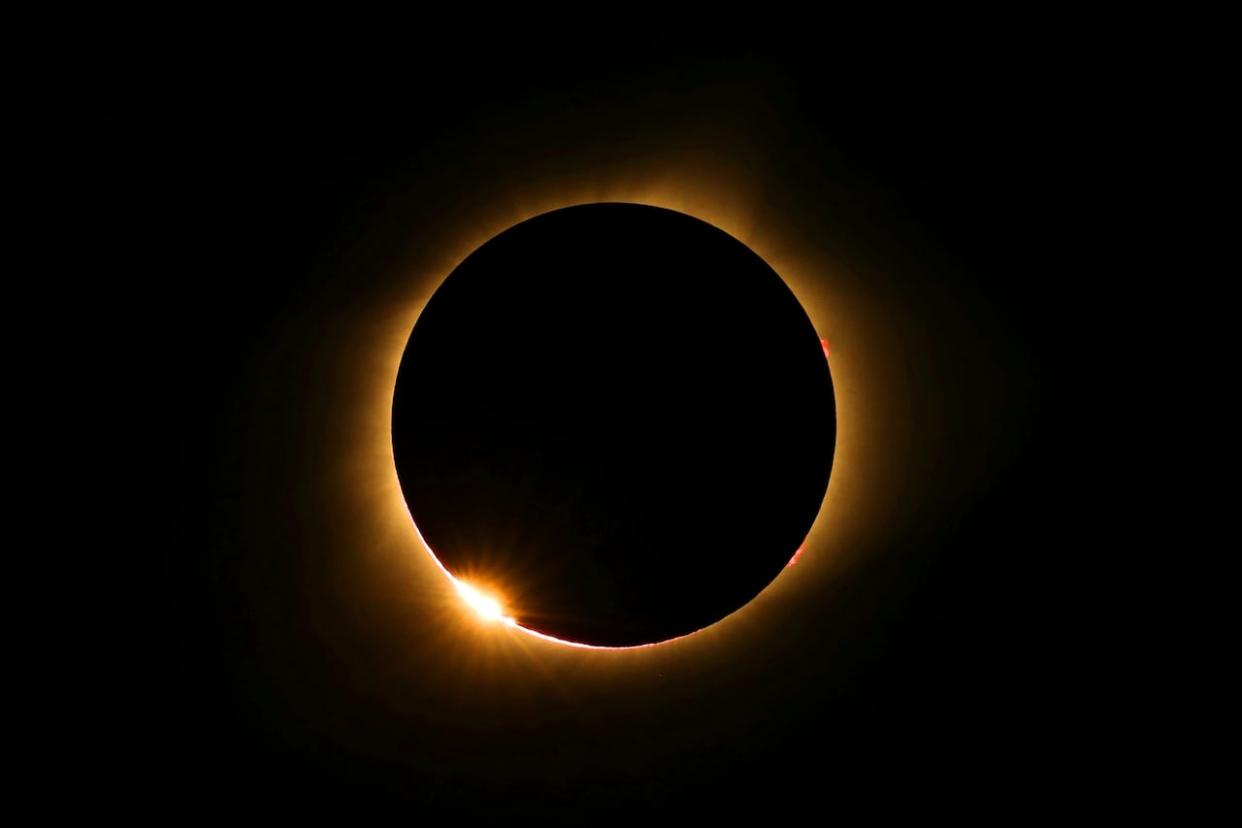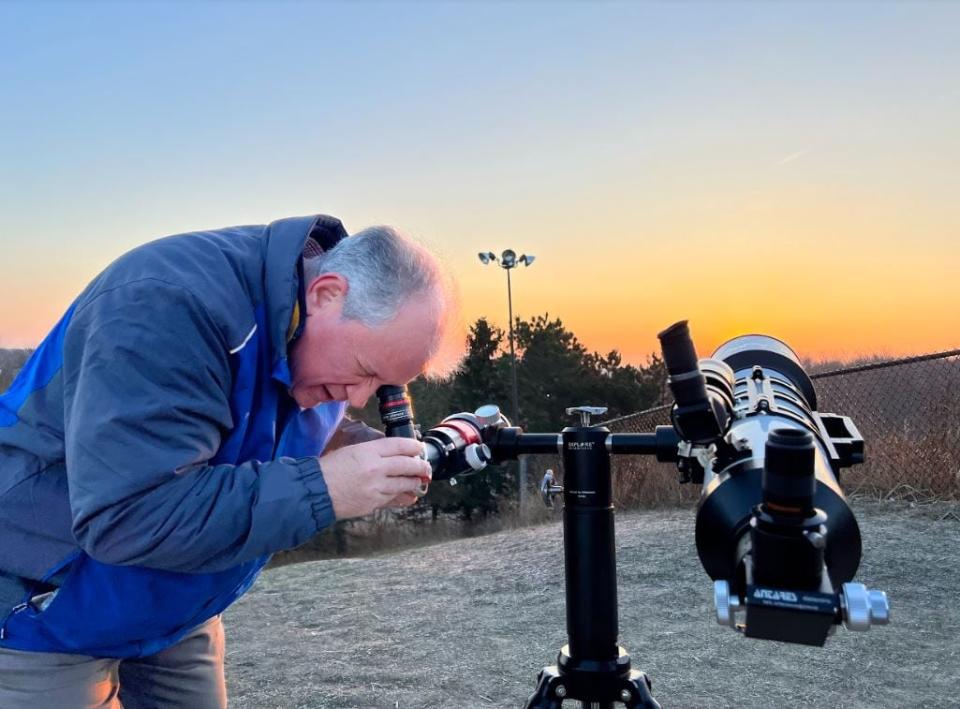'Be prepared to move' to get the best view on eclipse day, says Windsor astronomer

Don't let your excitement for the eclipse be clouded by the possibility of overcast skies, says one Windsor astronomer.
Environment Canada's April cloud cover data for the last 30 years suggests the chance of clear skies in Windsor during the eclipse is 19.7 per cent. When combined with the chance of mostly clear skies, the percentage rises to 28.7 per cent.
The likelihood of broken or overcast skies tops 30 per cent.
Despite the past trends, University of Windsor astronomy professor Steve Pellarin says it's still too early to know what the day will be like.
"I wouldn't count on any forecast more than five days in advance, because the weather is so changeable in such a short period of time," he said.
"Usually it's a last minute decision that people have to make."
Pellarin added that people should check the weather the day before the eclipse, as that will give a more accurate picture.
And even if it is cloudy, Pellarin says it's still worth going outside for at least 20 minutes before and after totality to see the change in brightness, temperature and wind.
"If you can hang out outside and see if there's a break in the clouds, it's worth even just a glimpse of it, because it's once in our lifetime that it's going to come through this part of Essex County and it is spectacular," he said.

Steve Pellarin is an astronomer at the University of Windsor. Here he is pictured in December 2022. (Jennifer La Grassa/CBC)
For people who are especially determined to see the eclipse, they need to "be prepared to move" in the case of clouds, Pellarin said.
He said if it's cloudy in Windsor-Essex, then it's likely cloudy all the way up to Niagara Falls.
"So your best bet is to actually head away from the lakes," he said.
Pellarin says depending on how committed you are to catching the phenomenon, people could consider driving to western Ohio or Indiana.
Will you see anything if it's cloudy?
If there is cloud cover, Pellarin says it still will get quite dark, which is something he believes people should experience.
"It'll get dark and the streetlights will come on," he said.
He says there could also be a drop in temperature and a breeze that picks up before and after totality.
The breeze, he says, is a result of cold air in the moon's shadow which gets denser and wants to sink. As it sinks, it will hit the Earth's surface and is compressed by the air above it, causing it to pick up speed, he described.
But Pellarin says this depends on how thick and how high the clouds are.
If the clouds are low, he says they could block the cold air from sinking and insulate the ground, meaning that there might not be much of a breeze.

